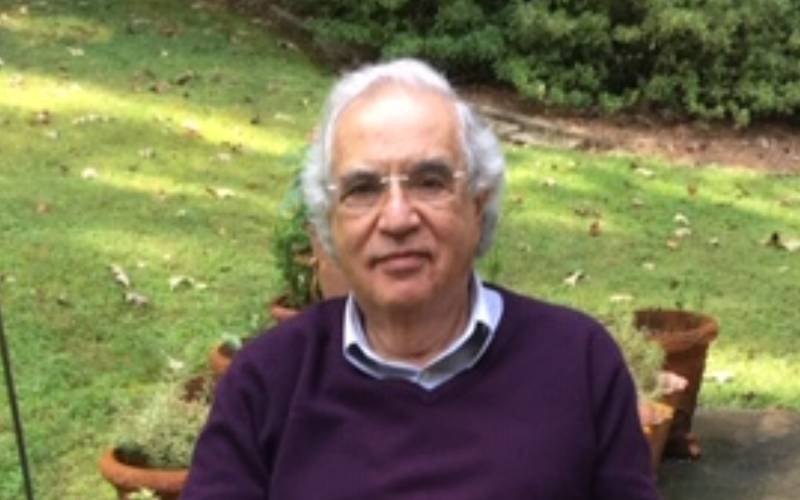“ There are things that arise in later life that have to do with the conflict of cultures that arises when you’re dealing with someone who either is an immigrant or is the child of immigrants. This is also the case with someone who comes from a family in the U.S. which is deeply conservative and religious and later breaks with that and subscribes to what is called a more cosmopolitan culture. These are things that arise in later life – these are conflicts with their own cultural background and with the people who matter most to them. ”

Robert Paul, PhD
Atlanta
Episode Description:
Dr. Harvey Schwartz welcomes Dr. Robert Paul to today’s episode. Dr. Paul is well known for having three careers; he has been Dean at Emory College, he is the Charles Howard Candler Professor of Anthropology and Interdisciplinary Studies at Emory, and is also a Training and Supervising Psychoanalyst at the Emory University Psychoanalytic Institute. He is also a prolific writer and has served on multiple editorial boards.
In today’s episode, Dr. Paul discusses how these three careers have been integrated for him. As Dean, Dr. Paul saw his analytic patients early in the morning which grounded him. It deepened his ability to bring his analytic mindset to the challenging administrative work that he faced the rest of the day. As an anthropologist, Dr. Paul has been able to bring his study of cultures to his analytic listening and has given him an added capacity to work with people from foreign cultures as they approach the analytic task.
This conversation reveals the power of introducing new experiences for mentees, faculty, students and patients. Dr. Paul describes his mentor and how he introduced him to the opportunity to move forward in his life. In turn, Dr. Paul describes how he mentored others and inspired them to also move forward in their various careers and interests.
Key Takeaways:
[7:25] Dr. Schwartz talks about the intersection between anthropology and psychoanalysis.
[9:16] Dr. Paul shares his experience being a dean and a psychoanalyst.
[14:10] Dr. Paul builds bridges between anthropology and psychoanalysis.
[16:10] How does Dr. Paul’s work as an anthropologist interface with his work as an analyst?
[19:38] Dr. Paul talks about the similarities and differences between the Buddhist and the analytic method.
[24:07] How being an anthropologist adds to Dr. Paul’s clinical listening.
[26:00] Dr. Paul dives deep into the conflict of cultures.
[29:28] Dr. Paul shares a clinical example.
[32:18] The difference between not being able to say certain things and believing you cannot think about them.
[33:25] Dr. Paul shares how he integrates his several different passions and the role his mentor had on his career choices.
[39:04] The impact analysts have on the world.
Mentioned in This Episode
IPA Off the Couch – www.ipaoffthecouch.org
Recommended Readings
On ‘The Optimal Structure for Psychoanalytic Education’: Commentary of Wallerstein. JAPA 55(3): 991 – 997. 2007. Paul, Robert A.
Is the Nature of Psychoanalytic Thinking and Practice (e.g.) in regard to Sexuality Determined by Extra-Analytic, Social and Cultural Development: Sexuality: Biological Fact or Cultural Construction? The View from Dual Inheritance Theory. IJP 97(3): 823 – 837.2016. Paul Robert A.
Anthropology. In Salman Akhtar and Stuart Twemlow, Eds., Textbook of Applied Psychoanalysis, London and New York: Routledge., pp. 3 – 12. 2018. Paul, Robert A. .
Changing Attitudes About Sex. In Vaia Tsolas and Christine Anzieu-Premmereur, On the Body: A Psychoanalytic Exploration of the Body in Today’s World. London and New York, Routledge, pp. 28 – 41. 2018. Paul, Robert A.
Personal Feeling: Psychoanalysis, Anthropology, and ‘Individuology’; Book Review Essay. JAPA 68(4). Currently available on-line, forthcoming soon in print. 2020. Paul, Robert A.

I enjoyed listining to what Dr. Robert Paul had shared with us. I found his experience very inspiring. Thank you so much for making this interview.